Text | AnnaKarina
Edit | AnnaKarina
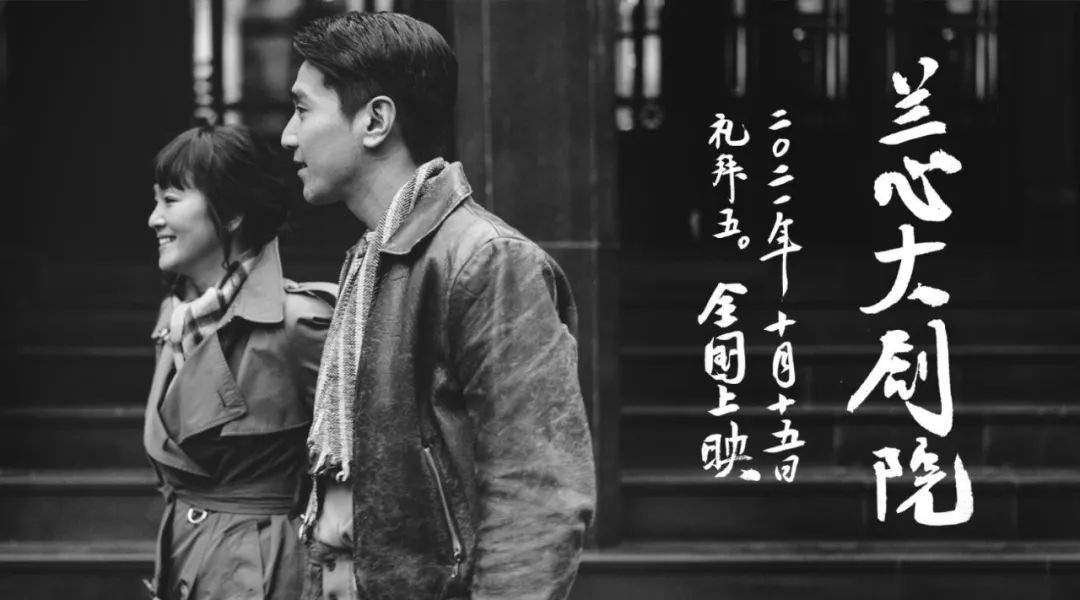
On September 4, 2019, The Lanxin Grand Theatre premiered at the Venice International Film Festival, which was the first time that Hong Ying, the author of the original novel Death in Shanghai, saw the film twice a day.
Writer Hong Ying commented that "Lanxin Grand Theatre" filmed the original content of the novel, and also photographed something that sank at the bottom of the text. It is a film."Pure art film with spy war shell", at the same time, is a."Pure feminist film".
Feminism, which is what Lou Ye is most interested in "Death in Shanghai". From the original work to the film, feminism is a personal choice finally made by Yu Yan under the influence of the times, and it is the sharp knife that Baiyun Shang stabbed Mo Zhiyin’s lower body.
However, Hong Ying’s fascination with Shanghai and her concern for women make her attach great importance to the restoration of time. Even in Lust, Caution by Ang Lee, she is not satisfied with the background and characterization. But Lou Ye didn’t slack off, so there was the "island" Shanghai in "Lanxin Grand Theatre". In the eyes of Hong Ying, "Lou Ye was born for movies, and it is important to regard movies as the first thing in life.He is not sociable and saves more time to study movies. “
Going to the cinema in Lou Ye always makes people nervous, and the shift of "Lanxin Grand Theatre" seems to be expected. After nearly three years, it finally meets the audience. butLou Ye and Hong Ying, who have known each other for many years, began to cooperate in the 1990s, and it was not until the Lanxin Grand Theatre nearly 30 years later that the interweaving of words and images was completed..
01
Shanghai, Shanghai
The death of Shanghai, pun intended.First, the opening part reveals the tragic ending of the heroine Yu Yan jumping from the top floor of the international hotel, leaving no room; The second refers to the city of Shanghai, which has fallen into"Double Death"In the middle.
"In the deafening sound of guns, Shanghai was swallowed up piece by piece. Sad cries come out of underground water holes and linger in the air. "In Hong Ying’s description, Shanghai was" dead "in the process of building a strong ship and sharpening its guns; However, "the mountains and rivers are broken, and the citizens are more addicted to pleasure … even if the land in Shenzhou is sinking … people on the isolated island are more drunk than before … Shanghai has become a freak in the war … China may survive, but this Shanghai is hard to survive", which is its second death.
In Lan Xin Grand Theatre, Tan Na, the director played by Mark Chao, directed a play and invited Yu Yan, played by Gong Li, to return to Shanghai from Hong Kong to play the heroine. The play is called.Saturday novel. This play is adapted from the novel Shanghai by Japanese writer Yokomitsu Liyi. The work describes the May 30th Movement in 1925, and Lou Ye changed the story of "romantic affairs" in the original work into a tragic tragedy. The English title of "Lanxin Grand Theatre" directly uses "Saturday Fiction", which is very obvious.
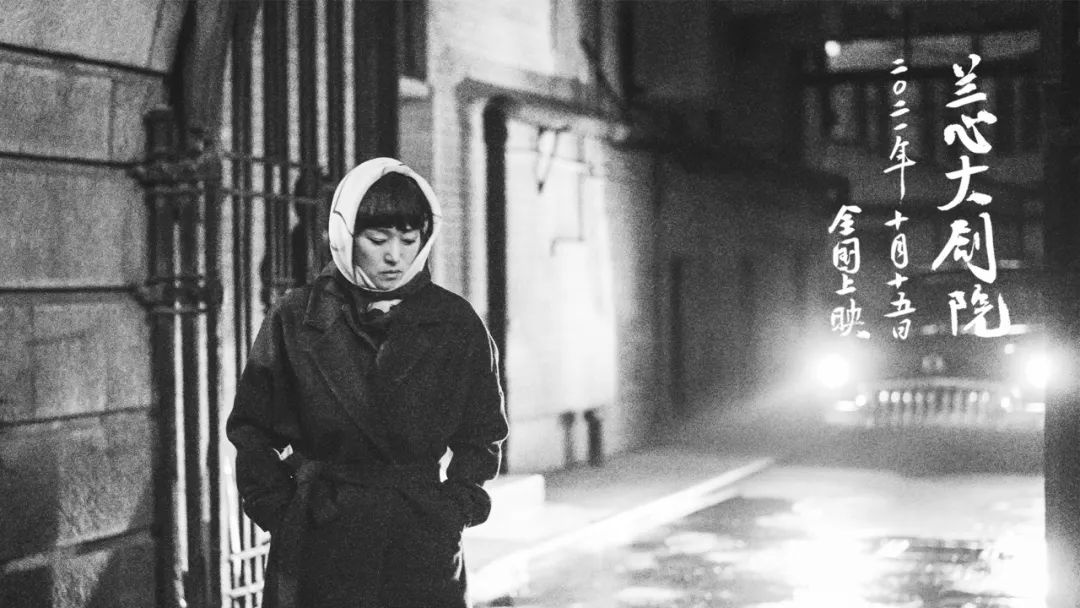
One is Shanghai in the war years. The protagonists in the film are all intellectuals and artists. They go in and out of hotels and theaters and live a decent and prosperous life for the middle class. In the play, it is a more real story of the left-wing bloody struggle. Lou Ye admits that this is a class supplement to the main story; In addition, Lou Ye has also set up two important scenes, one is a prostitute warming herself outside the hotel, and the other is a laundry and ironing lady in the hotel, so that we can get a glimpse of a more three-dimensional Shanghai.
The second is to show the cowardice and powerlessness of the left-wing director Tan Na. He hopes to be a revolutionary like Yu Yan, but as an artist, his body retreats in the face of violence, and he can’t reach the front line, so he can only support the workers’ movement through drama. He was forced to get involved, as he himself said, he was a pawn, butIn this life-and-death war, who is not a pawn that has been used and sacrificed?
Lou Ye played the role of the play to the extreme, and his deeper intention was to criticize the "Saturday School". "Saturday School" is a literary school in the early years of the Republic of China. It is the aftermath of "Yuanyang Butterfly School", a replica of Crescent School, and an interesting literature that promotes games and recreation.
At that time, Tan Na’s left-wing troupe was in opposition to Saturday School, but Lou Ye used a left-wing director to direct a drama called Saturday Novel to tell an anti-imperialist strike of workers, in which the irony was concrete and brilliant.In the current context, isn’t this an accusation against frivolous mainstream entertainment and the supremacy of pleasing?
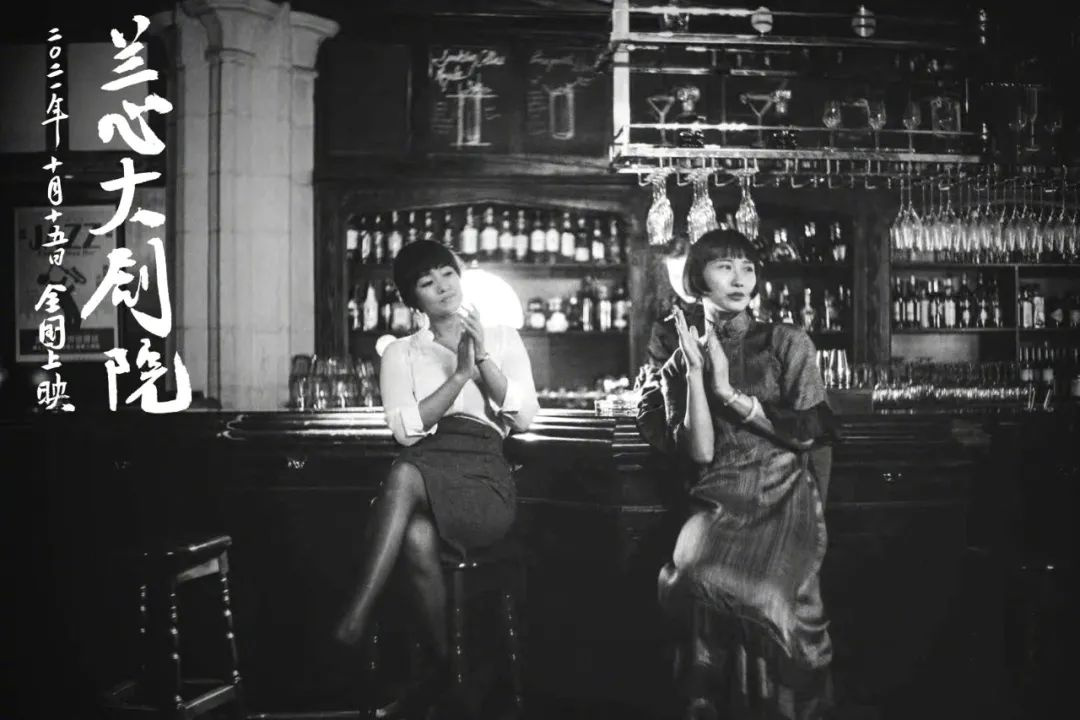
Although "Lanxin Grand Theatre" is a black-and-white film, it is a color film in Lou Ye’s view, because he thinks that the workers’ strike situation explained in "Saturday Novel" is "Chromatogram of Shanghai in 1941",remove the surface color, the gray level between black and white needs more rigorous treatment.
In the black-and-white presentation, Lou Ye used the consistent hand-held lens to "shake" the uneasy environment and the confusing fate of the characters, and extended the inner world of the characters to history and politics to complete the real expression. Therefore, Lou Ye expressed his sympathy for this "isolated island" in his way, even though he didn’t spend too much time on the urban landscape of Shanghai.
02
Yu Yan, Qiu Lan
"At sea, the lighthouse does not exist in the darkness for a person. Butterflies fly freely, which is actually the same fate as being a specimen. But in the process of flying, no god can dominate this fate. "
Hong Ying, a writer, regarded this passage in the original work as a key to open this story. She privately thought that the lighthouse was the spark of revolution, while the butterfly was a woman in troubled times like Yu Yan. This passage implied their unknown fate, and at the same time, they could make rational judgments independently and their free will was not bound.
In Shanghai in December, the dark clouds were overwhelming and the rain was complicated. This rain has been falling from the original book to the film, which is a painful note behind this seemingly glamorous city. In the film, Yu Yan returned to Shanghai in the heavy rain. The "panic" lens swept through the cold and damp, capturing her tightly wrapped face. The flash of the reporter’s camera was like a lightning bolt that cut through the darkness, indicating that her return was doomed.
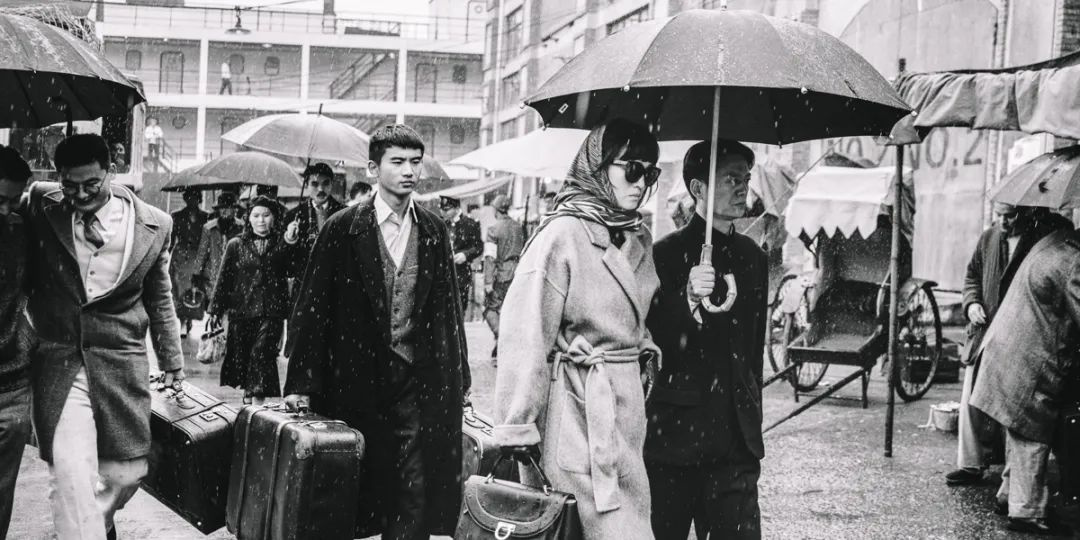
From then on, she had two names, one was Yu Yan, who was well known, and the other was Qiu Lan, who led the workers’ strike in the drama.At the same time, she has multiple identities, such as star, spy, ex-wife, lover, daughter and woman, which makes her have to be watertight in front of others and treading on thin ice behind.
Hong Ying mentioned that "spy plays are mostly literary plays, and knives are used at most", while spy missions are the front lines in the battlefield behind enemy lines. In this wrestling field where multiple forces are mixed, everyone’s face is vague, but everyone with tasks is as agile as an eagle.The charm of Lou Ye’s "shaking" lens is that everyone who is deeply involved in it can’t see the overall situation, and the audience doesn’t have God’s perspective, but you can always feel the weight of a sharp eye in those flashes of focus.
But Yu Yan is not a cold-faced killer, nor does she rely on selling her beauty for information. In the film, from seeing Ni Zeren, the detained ex-husband, to hugging Tan Na after being forcibly photographed by the Japanese army, to hypnotizing Japanese intelligence officer Tanya Saburo, and the decisive battle on Saturday night, Yu Yan cried four times, without crying, all silently, letting tears flow on her face.
The next morning after she hypnotized Bai Yunshang, Bai Yunshang knelt beside her and leaned her head on her chest. After Tan Na stopped the Japanese from taking a photo, he buried himself in her shoulder. Compared with lust, the author sees more powerful and affectionate motherhood, which may benefit from Gong Li’s own charm, because Yu Yan in the original book is only 27 years old and does not have this weathered beauty.
The image of rain is like violet’s wet face, and the tears gush out again before they are dry.In the torrential rain on the night of the decisive battle, the literary drama set the stage, and the martial arts drama ended. Yu Yan pulled out her gun and walked alone in the Lanxin Grand Theatre. She knew that she was going to be a butterfly that was made into a specimen, so she shed tears and shot at the same time, and reason was not dominated by compassion.
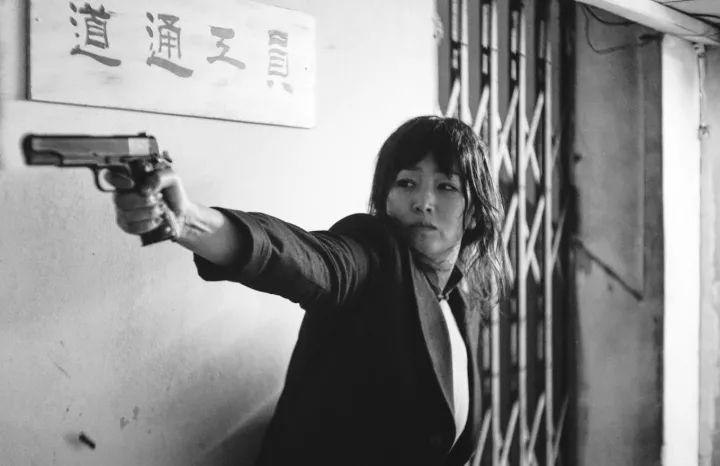
On the other hand, in order to force the United States, which is on the sidelines, to show its position, her free will finally made her choose to "betray" her faith (adoptive father) for greater justice, and at the same time, she chose to go to more specific love when she could get away with it (Tan Na).This is a sacrifice, but also a double suicide.. This is the complete embodiment of modernity in pansy.
03
Lou Ye, the movie.
In the face of Lou Ye’s films, what is certain now is that he is not afraid of no audience.
At first, Lou Ye seems to have had doubts about his market appeal.
In 1993, the first film "Weekend Lover", which took more than 40 days to shoot, was finally released on a small scale at midnight on weekends after two years of review. Shanghai first appeared in Lou Ye’s lens through "Weekend Lovers".
Censorship, underground, is the shadow attached to Lou Ye’s films from the beginning.
Frustrated, Lou Ye couldn’t escape the confusion of the dislocation between art and business: "It is becoming more and more difficult to decide whether antonioni’s film or Jackie Chan’s" The Red Fan District "is closer to the essence of the film."
A film that can’t meet the audience, part of its meaning will be dissolved. Perhaps it is to realize this, or it is the pressure of reality. Lou Ye turned to the system and filmed a thriller suspense movie "Girl in Danger", soLou Ye has never rejected commercialization, but he always "smuggled goods" under the framework of genre. Even today, if the concepts of stream of consciousness, vanguard and artistry are put into commercial genre films, not many viewers will buy it.
After several searches, Lou Ye came to Suzhou Creek, focusing on Shanghai again. On the oldest black and smelly water body in China, the love story of Motor and Peony was born from Lou Ye’s Super 8 camera.
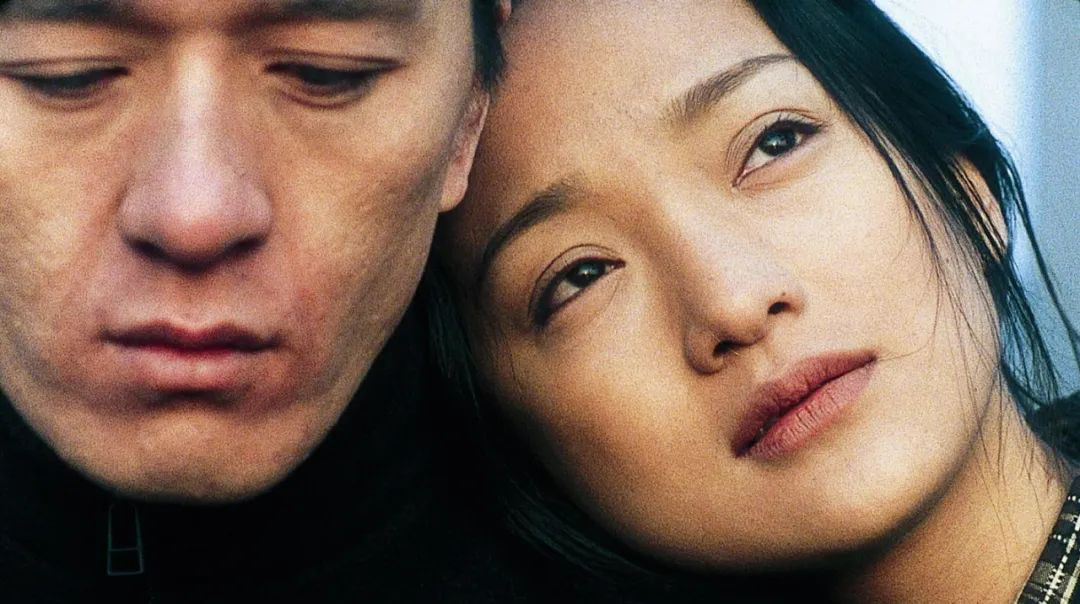
Then came the 30-million-yuan production of Purple Butterfly, and on the eve of the outbreak of War of Resistance against Japanese Aggression, Shanghai merged into the faces of Zhang Ziyi and Liu Ye; Then came Yu Hong, the Summer Palace became synonymous with prohibition, and Lou Ye began to become a "fighter" in everyone’s mouth.
"Confusion and trial and error of intellectuals in social transformation" is the state of the characters in the film and a portrayal of Lou Ye himself, but is he really that confused? Not necessarily. In 2014, the poster of "Massage" was impressively printed.The slogan "Individual travelers should do it" is the insistence of the characters in the film, and it is also the reference of Lou Ye’s loyalty to himself in reality.
From the beginning to the present, he has never given up his pursuit of image style and personal expression. In terms of commercialization and artistic presentation, he has long been able to make a clear distinction: "Cooperate as much as possible on the bottom line and resolutely quit under the bottom line. I try to be happy. "
In front of Lou Ye, there are only movies, and in his eyes, movies are not just about telling a story.
The city is always Louyedian.Shadow business card,Magic Shanghai, lost Beijing, shaky Wuhan, turbulent Guangzhou, Lou Ye’s lens carved a landmark full of emotions. He once said: "The city is the skin of the film, and it is best to be combined with the story and have uniqueness."And it is always people who are placed in the foreground of this huge background board.It’s motor and peony, Yu Hong, Yu Yan, and what surrounds them is the torrent of the times and the historical process.
At the same time, Lou Ye is still exploring the audio-visual and structure.
Lou Ye has publicly expressed his disappointment with Rome directed by Alfonso Cuarón. He thinks that the black-and-white image of Rome is too exquisite and beautiful. "Then a film about the proletariat uses a completely bourgeois image.". When he came to Lanxin Grand Theatre, Lou Ye broke the exquisiteness of the picture with rough images that he was always good at. At the same time, he dispelled the bourgeois tendency of the film by supplementing the class and satirizing the "Saturday School".
Structurally, Lanxin Grand Theatre makes the play in the play to the extreme, allowing the audience to "magically" shuttle between reality and illusion, but if you are careful enough, you will find that Tan Na’s glasses are the password to unlock this magic. Structural addition to linear narrative and "blank space" in narrative through a large number of skipping clips greatly increase the richness of the story.
Looking back, this is just a story from Monday to Sunday, from the day of return to the night of decisive battle.Subtitles constantly remind the audience of the urgency of time like flipping through a calendar, but the "effective information" of the spy war action is not directly fed to the audience, and the audience needs to disentangle themselves from the struggles, passions and secret fragments of the characters.
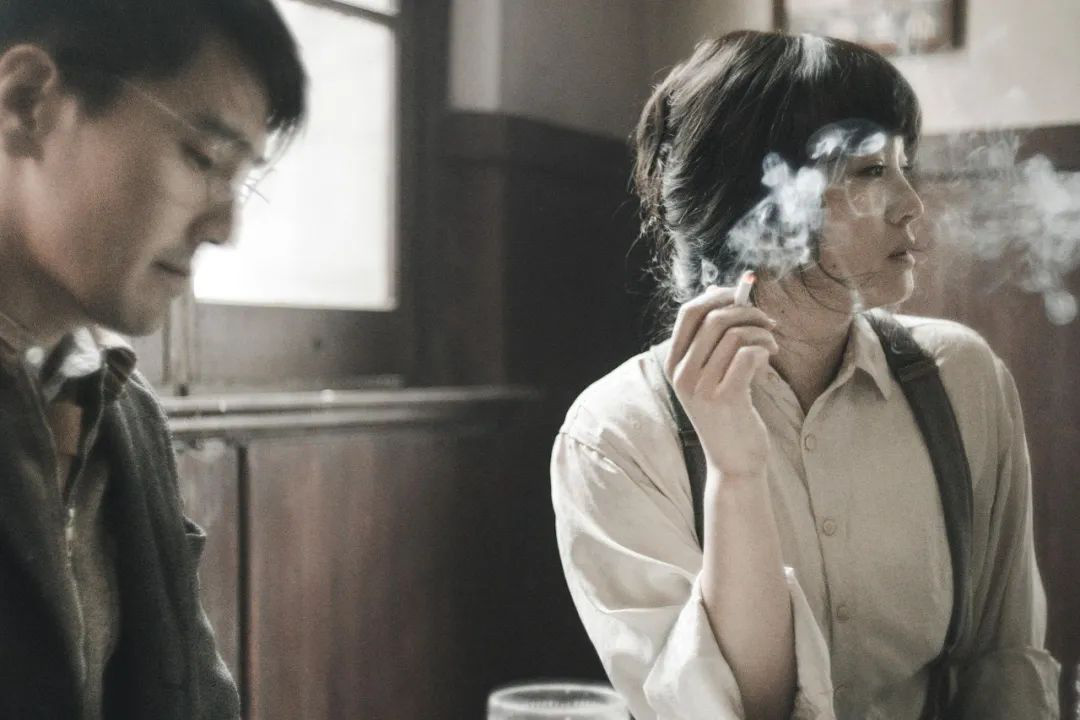
So, this is just Lou Ye once again. "In the name of typology, do the opposite of typology."that’s all,This is the threshold of Lou Ye’s films. When you no longer regard the text as the first essence of the film, and regard the form and content as a narrative whole, audio-visual language is no longer an auxiliary expression, and at the same time capture the ideographic meaning outside the narrative, you will truly become his audience.Lou Ye once said: "You can believe it, because it happened in my lens;" You can also not believe it, because there are other things happening outside the camera lens. "
Lou Ye is not a fighter, he is just a film writer."Lanxin Grand Theatre" In the end, when the Japanese army broke into the stage with guns, the protagonist was in crisis, and the drama and reality were highly coincident in an instant. This is the art of violence intervention. We didn’t know the danger was coming until the stray bullet hit the audience.
Lou Ye said:All narratives of history are narratives of today.This is the modernity of Lanxin Grand Theatre.
-THE
关于作者